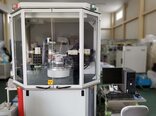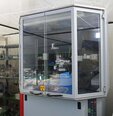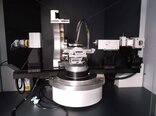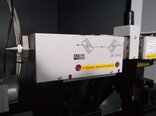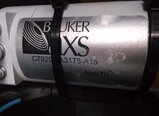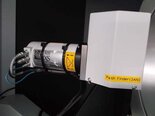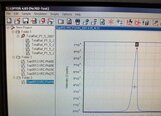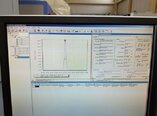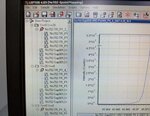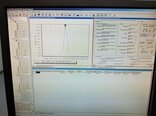Used BRUKER-AXS AXS D8 Discover #9409706 for sale
URL successfully copied!
Tap to zoom
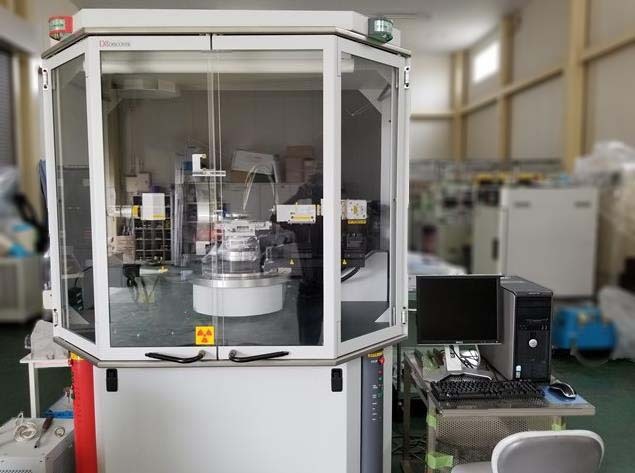

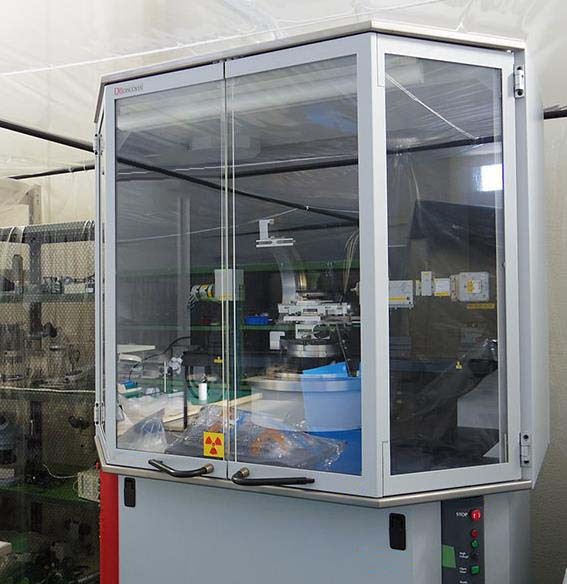

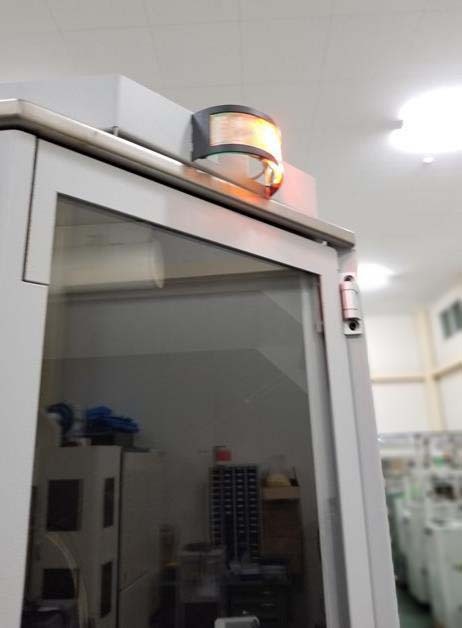

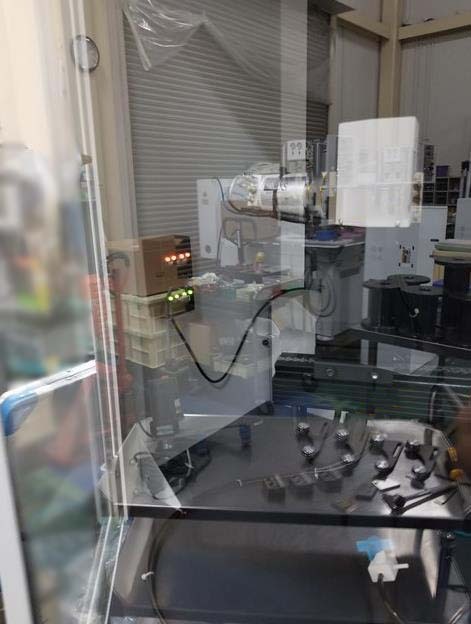

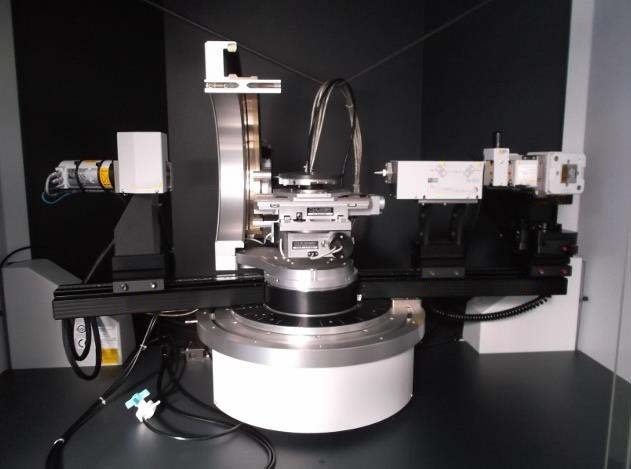

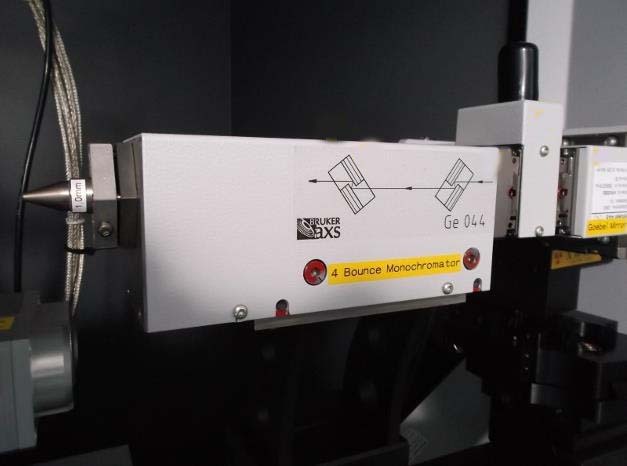

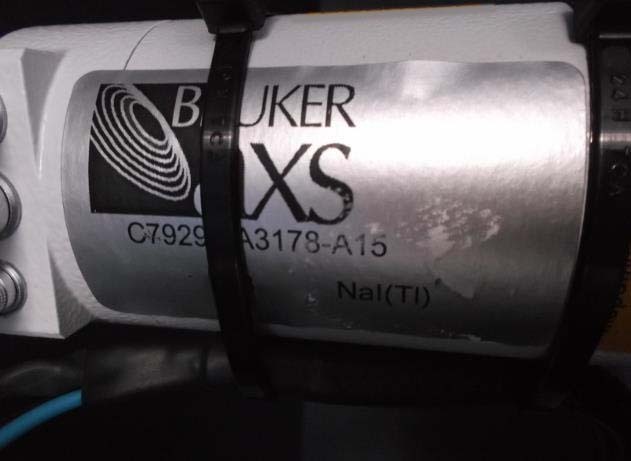

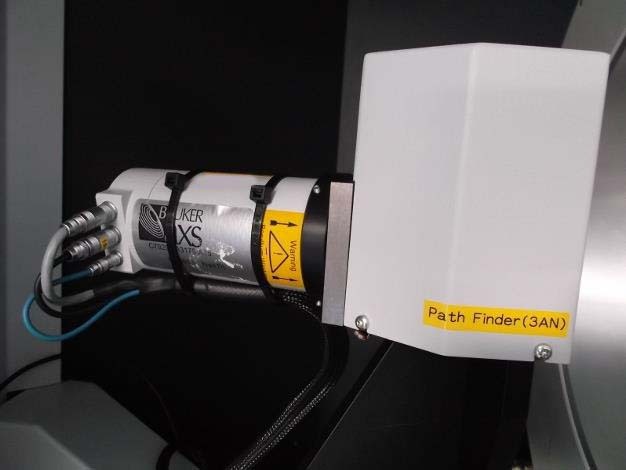

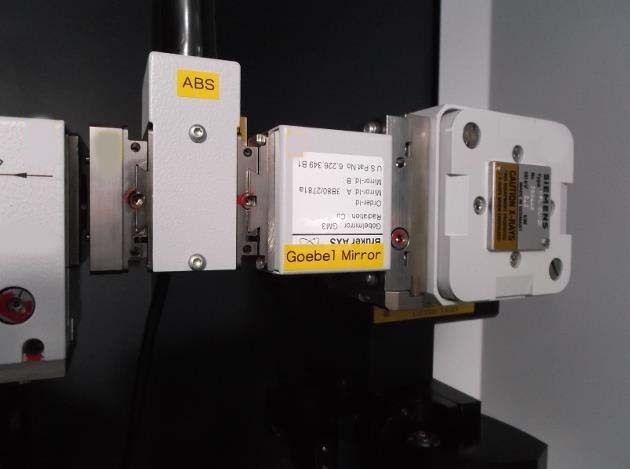



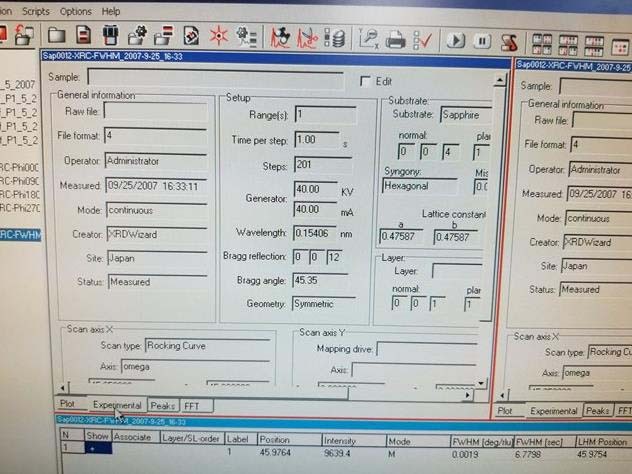

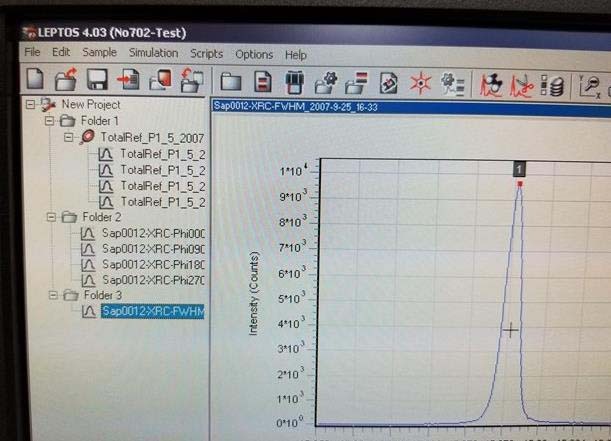

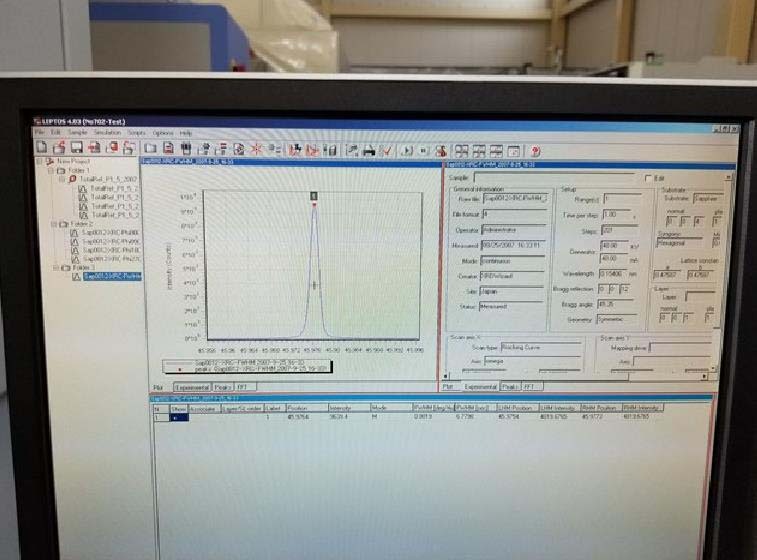

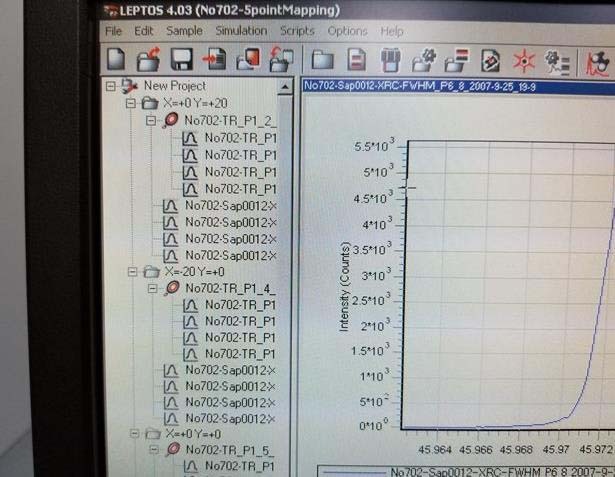

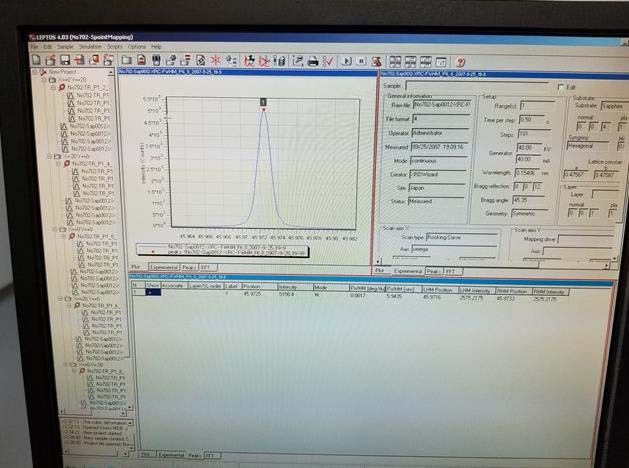

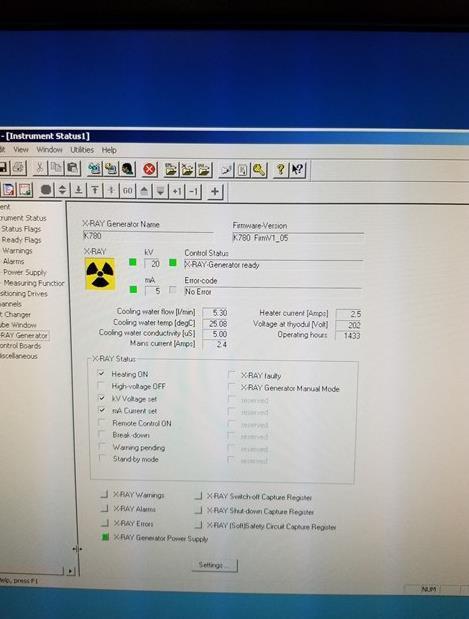

ID: 9409706
Vintage: 2007
X-Ray diffraction system
Radioactivity source: Cu 0.4 x 12 mm, 3 kW
Goniometer
4-Crystal manometer
GE044 Symmetry
UBC Collimator: Φ 0.3, Φ 1.0, 33 mm
HUBER Eulerian cradle
Vacuum chuck stage, 5"
4-Magnet stage, 2"
Scintillation counter detector
Path finder: 3-Bounce
Step up transformer
Water cooling system: Water to chiller
PC Desktop
Manuals included
Data processing system:
TFT Liquid crystal display, 17"
CPU: Pentium 3.0 GHz
Main memory: 512 MB
Hard Disk Drive (HDD): 80 GB
Operating system: Windows XP
A4 Color printer
Drive:
Floppy Disk Drive (FDD)
CD Drive
DVD-RW
2007 vintage.
BRUKER-AXS AXS D8 Discover is an X-ray diffraction system designed to make high-throughput X-ray measurements. It is a multi-application system that is mainly used to analyze various materials such as polymers films, pharmaceutical tablets, ceramic oxides, and proteins. The instrument consists of a number of components including an X-ray source, sample holder, crystal monochromator, and detector. The X-ray source is a high-frequency generator that produces X-ray radiation. It is comprised of a tungsten anode, which emits X-rays when excited by a high-voltage current. The X-ray radiation is then passed through a collimating unit that focuses the beam onto the sample holder. The holder can support various types of samples, depending on the application. After passing through the sample holder, the X-ray radiation is collimated again by a second collimator before being directed to a crystal monochromator. The monochromator filters the X-ray radiation, selecting the desired wavelength. The filtered radiation is then detected by a scintillation detector, which converts it into an electrical signal which is then processed by BRUKER-AXS D8 DISCOVER system. AXS D 8 DISCOVER can be used to measure a variety of properties, including the crystallographic composition and structure of a material, as well as its susceptibility to compression, fatigue, and friction. It is a powerful instrument that is used in a variety of research areas including material science, physics, chemistry, and life science.
There are no reviews yet
